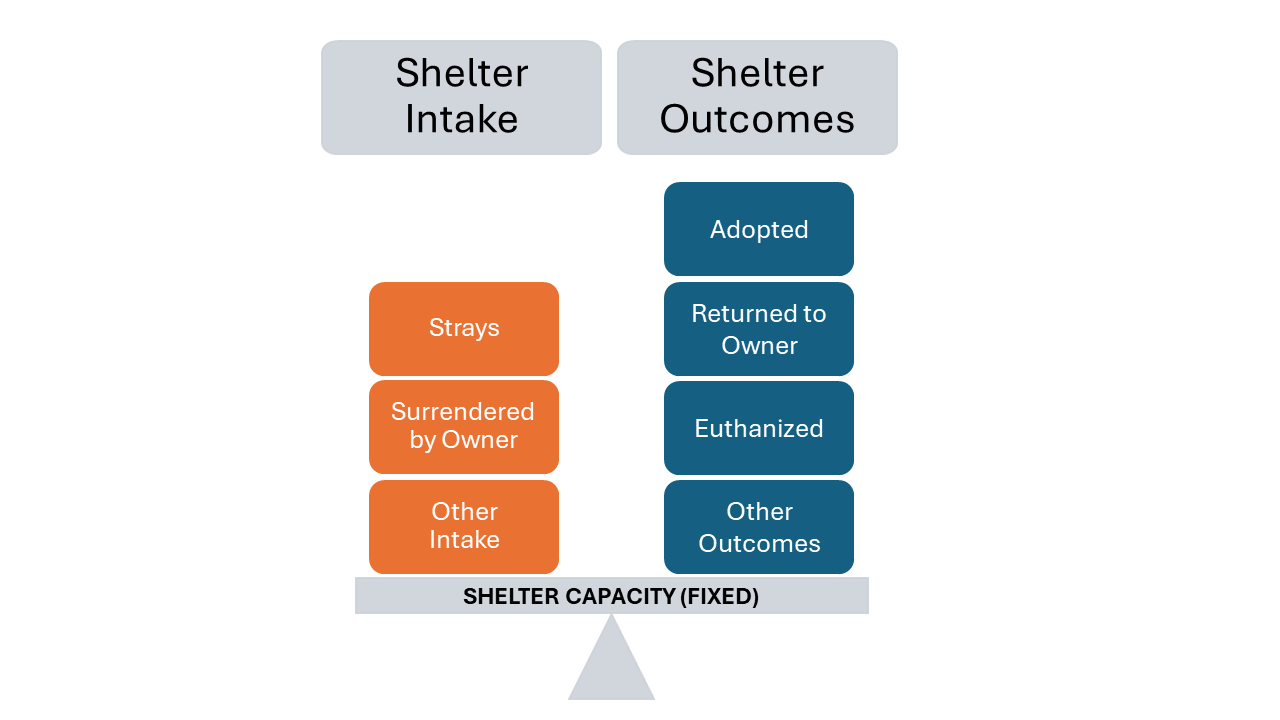

Challenges Faced by Shelters: Many shelters face ongoing challenges due to high intake rates relative to their capacity, making euthanasia a pragmatic but emotionally challenging reality. Advocacy for animal welfare, public education, and community involvement are crucial in addressing these issues at their root causes.
Community Responsibility: About 80% of dogs entering shelters come from owner surrenders or are strays brought in by the public or animal control. This underscores that communities have a significant impact on the number of animals shelters must accommodate.
Outcome Statistics: Similarly, around 80% of dogs leaving shelters do so through adoptions or owners reclaiming their lost pets. These outcomes also heavily depend on community engagement with adoption efforts and responsible pet ownership practices.
Limited Options: When shelters reach or exceed their capacity to care for incoming animals, they typically have two main options: transferring animals to other facilities with available space or euthanasia. Transfers can help alleviate immediate capacity issues but may not always be feasible depending on regional resources and coordination.
Euthanasia as a Last Resort: Unfortunately, euthanasia becomes a necessary but distressing decision when shelters cannot find alternative placements for animals and overcrowding poses welfare risks. This underscores the critical need for communities to support shelters through adoption, fostering, spaying/neutering, and responsible pet ownership to reduce the need for euthanasia.
Ultimately, this situation underscores the importance of responsible pet ownership, community support for adoption, spaying and neutering programs to reduce overpopulation, and efforts to reunite lost pets with their owners promptly. Animal shelters play a critical role in caring for animals in need, but they also rely on the community to help balance animal intake and animal outflow to avoid overcrowding and minimize euthanasia rates. This collective effort can lead to better outcomes for animals in need and help alleviate the difficult decisions shelters face daily.
